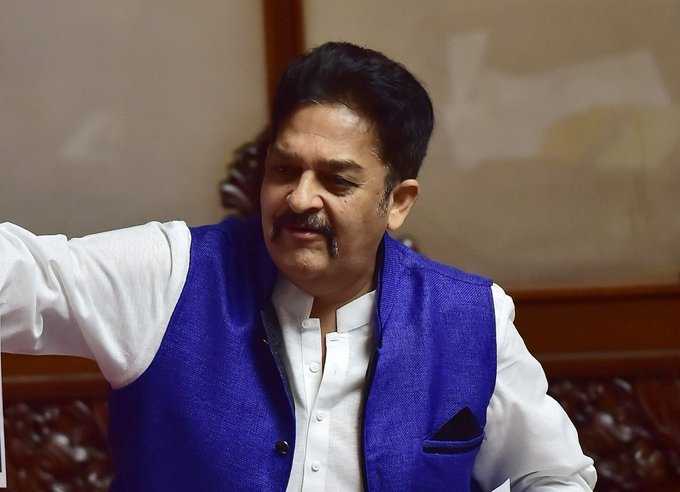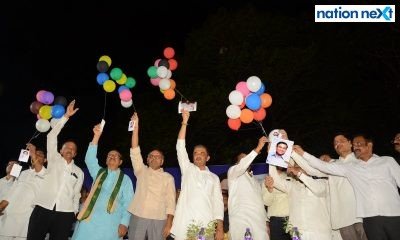Uncategorized
Q & A: Restrictions on cash transactions of Rs 2,00,000 or more

The Narendra Modi government has taken yet another bold move post demonetisation to tighten the noose on tax evaders. This time the government has banned cash transactions over and above Rs 2,00,000. Henceforth, any person receiving cash of more than Rs 1,99,999 will have to pay 100% penalty of cash received i.e. if the amount received exceeds Rs 1,99,999, a recipient will have to pay the entire amount received as penalty under section 271DA of the Income Tax Act.
Now any person (Individual, firm, company, etc) cannot accept cash of more than Rs 1,99,999 from a single person in a day.
Acceptance of such cash will attract 100% penalty.
A person receiving cash will be liable to pay the penalty.
? Cash gifts aggregating to 2,00,000 or more than that will attract 100% penalty. This includes cash gifts from relatives as well as cash gifts on events or occasions like marriages, child birth, etc.
? There is no bar on cash deposits in banks, co-operative banks and post office saving accounts.
? Withdrawal of cash from banks is allowed without any limits.
To give you more clarity on the subject, here are some frequently asked questions and their respective answers:
Question 1: From which date these restrictions are applicable?
? Cash restrictions are applicable from financial year 2017-18, i.e., for all cash transactions after 01/04/2017.
Question 2: Whether threshold limit includes Rs 2,00,000 or not ?
? Recipient can receive an amount upto Rs 1,99,999 in a cash in a single day.
Question 3: Whether these restrictions are applicable to even those who don’t have Income Tax PAN number?
? Yes, these restrictions are applicable to all. Contravention, if any found in future by Income Tax department, a recipient will have to pay penalty @ 100%, even if the person doesn’t have a PAN number.
Question 4: Whether a person can receive an amount aggregating more than Rs 2,00,000 from different payers in a single day ?
? The above provision does not bar a person from receiving an aggregate amount of Rs 2,00,000 or more from different persons, provided single person should not pay more than Rs 1,99,999 in cash.
Example:
Mr X has received a total amount of Rs 9,00,000 on a single day from five different persons, wherein each person has contributed/paid an amount of Rs 1,50,000. In such situation Mr X won’t be hit by the provisions of 269ST.
Question 5: Whether a threshold limit of Rs 2,00,000 is transaction specific or day specific?
? Threshold limit of Rs 2,00,000 is both transaction specific as well as day specific. In both cases, section 269ST will be attracted. A person cannot receive from any other person more than Rs 1,99,999 in a single day in respect of one or more transactions. As far as specific transaction is concerned a person cannot receive cumulative amount of more than Rs 1,99,999 in cash in respect of a specific transaction.
Example:
If Mr X receives a sum of Rs 4.5 lakhs in respect of a single transaction (e.g Sale of goods in cash in a single bill), in three installments of Rs 1.5 lakhs each, on different dates, then such receipts would fall under this category of prohibited transactions even though none of these receipts were of Rs 2 lakhs or more. This is a very important condition which prohibits the splitting of payments over several days.
Question 6: What are the modes of payments prescribed by the law?
(a) an account payee bank cheque or
(b) an account payee bank draft or
(c) use of electronic clearing system through a bank account (e.g., NEFT, RTGS, online transfer from one bank account to another etc.).
Thus the receipt of amount of Rs 2 lakhs or above through any other mode e.g., cash, bearer cheque, crossed cheque, self cheque, transfer entry or adjustment entry in books of account etc., is not allowed.
Question 7: What is quantum of penalty that will be levied in case of default?
? Newly inserted penal provision, section 271DA stipulates a penalty of 100%, i.e., a sum equal to the amount of payment received in violation of section 269ST.
Example:
If a person receives an amount of Rs 2,50,000 from a single person on a same day, penalty will be levied @ Rs 2,50,000 and not on Rs 50,000.
Question 8: Who will be liable to pay penalty payer or receiver ?
? Receiver will be liable to pay penalty in case of default.
Question 9: Whether a farmer can receive an amount of Rs 2,00,00 or more in cash?
? The character of receipt is irrelevant, i.e., exempt income/taxable income etc. There is no exemption even for sale of agricultural produce. Thus even if farmer sells produce for Rs 2,00,00 or above, he cannot receive money in cash.
Question 10: Whether a person can receive cash gift exceeding Rs 1,99,999 from his close relatives in cash?
? Gift in cash from relative is exempted from income tax but if the amount of gift received is Rs 2,00,000 or more from relative in cash w.e.f 01.04.2017, the assessee will have to shell out 100% penalty. Even if the cash gift received from different persons in marriage or any similar occasion exceeds Rs 1,99,999, it will attract 269ST and accordingly receiver will be liable to pay the entire amount received as penalty.
Uncategorized
Nitin Gadkari graces screening of ‘Me Vasantrao’ at Sudama Theatre in Nagpur
Union Minister Nitin Gadkari graced the special screening of Marathi movie ‘Me Vasantrao’ – a movie based on the life of Hindustani classical singer and violinist Vasantrao Deshpande.
The screening was held at Sudama Theatre in Nagpur on Sunday evening in the presence family members, friends and the cast of the movie.
Uncategorized
Mayor Dayashankari Tiwari kicks off polio drive in Nagpur

Nagpur Mayor Dayashankar Tiwari, on Sunday, launched Nagpur Municipal Corporation’s (NMC) door-to-door polio campaign drive. He, along with Deputy Mayor Manisha Dhawade visited Rognidan Centre in Mahal, Nagpur and inaugurated the campaign by giving polio drops to a toddler.
As per NMC officials, ten Zonal Medical Officers and Ten Health inspectors would visit every house in their respective zones, in order to vaccinate children between the ages of zero-five to immune them against polio.
NMC had recognised Sunday as the official day for polio vaccination. Under Polio Ravivar, they plan to vaccinate more than three lakh kids in Nagpur. They also urged Nagpurkars to vaccinate their children at pulse Polio Booths near their homes from 8 am- 5 pm, on Sunday.
NMC Standing Committee Chief, Corporator Vijay Zalke spoke to Nation Next regarding this campaign and said, This year’s polio drive is going to be bigger than last year. We are planning to vaccinate around 3- 3.15 lakh kids. NMC is bearing the cost of infrastructure and execution. The state government provided us with the doses.
He further stated that there were special teams to vaccinate the homeless during night. ?When it comes to the health of Nagpurkars, money is not a factor we should think about, said Zalke when asked about NMC’s current financial crunch.
As per Zalke, vaccination facility would also be available in slums,, factory areas and other outskirts of Nagpur.
Uncategorized
Congress legislator caught watching porn in Karnataka Assembly

Congress leader Prakash Rathod, on Friday, was caught on camera while allegedly scrolling through few adult content clips in the State Assembly. This turned out to be a huge embarrassment for both, Congress and Rathod as regional channels aired the video, in which he was ?caught in the act.
The MLC member was present in the house during the proceedings of the legislative council. While the house was in session, Rathod was watching adult content on his smartphone.
However, he threw these charges under the bus and said, I was looking for materials for a question I wanted to ask the government in question hour.
?When I was looking for question material, I deleted too many messages as my phone storage was full. What the media has shown or seen, I don’t know. I would never do such things or see such things, he added.
This was not the first time in Karnataka that such an incident had happened. Back in 2012, three Bharatiya Janata Party ministers were caught on camera allegedly watching adult content in the State Assembly. Following the scandal, they resigned from the state government due to public embarrassment.
-
Health5 years ago
Amphoterecin B, used for treating black fungus, to now be manufactured in Nagpur
-

 Social4 years ago
Social4 years agoPoliticians, businessmen shower blessings on Chandrashekhar Bawankule’s son Sanket at his wedding reception
-

 Social4 years ago
Social4 years agoNagpur gets its first 7 am cafe ‘SEVEN O’ ELEVEN’ at Shraddhanand Peth
-

 Parties4 years ago
Parties4 years agoCouples have a blast, win awards at ‘Hollywood Oscar Night’ in Nagpur
-
Who´s Partying Next To You9 years ago
Nagpur brings in 2017 in style at Gondwana Club
-

 Parties4 years ago
Parties4 years agoFamily, friends ‘wine n dine’ at Dr Shilpa Mukherji’s birthday bash in Nagpur
-
Who´s Partying Next To You8 years ago
Party revelers make noise at Nagpur’s first silent party on New Year Eve at Gondwana Club
-

 Social4 years ago
Social4 years agoSunil Kedar kicks off 10-day Late Dr Shrikant Jichkar Memorial Cricket Tournament in Nagpur








